Adverbial phrases worksheets:
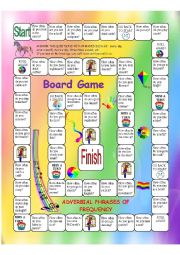
Adverbial Phrases of Frequency Board Game
Level: elementary
Age: 8-100
Downloads: 99
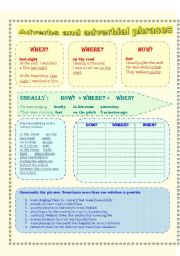
Adverbs and adverbial phrases (time, manner, place)
Level: intermediate
Age: 11-14
Downloads: 82
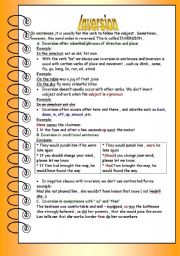
Inversion ( Part one )
Level: intermediate
Age: 14-17
Downloads: 65
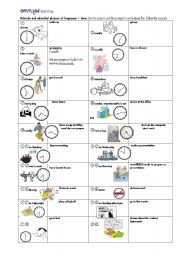
Adverbs and Adverbial phrases of Frequency + Time
Level: elementary
Age: 14-17
Downloads: 66
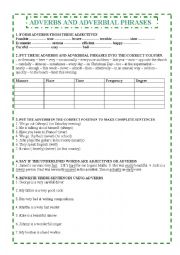
ADVERBS AND ADVERBIAL PHRASES
Level: intermediate
Age: 12-100
Downloads: 73
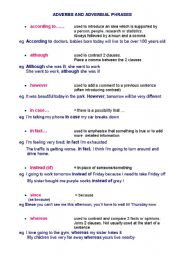
ADVERBIAL PHRASES
Level: intermediate
Age: 14-17
Downloads: 50
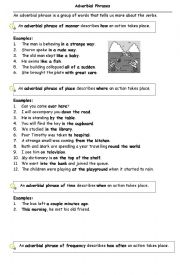
Adverbial Phrases
Level: elementary
Age: 8-10
Downloads: 51
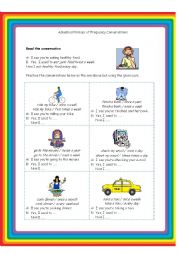
Adverbial Phrases of Frequency Conversation Card
Level: elementary
Age: 8-100
Downloads: 43
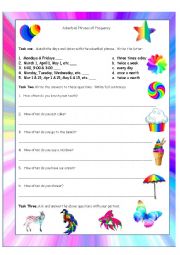
Adverbial Phrases of Frequency Worksheet
Level: elementary
Age: 8-100
Downloads: 44
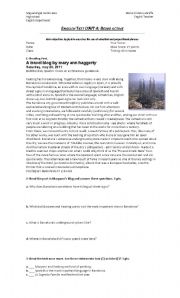
English test- reading listening and prepositional and adverbial phrases
Level: intermediate
Age: 14-17
Downloads: 17
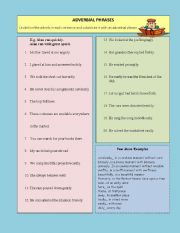
Adverbial Phrases
Level: intermediate
Age: 10-17
Downloads: 16
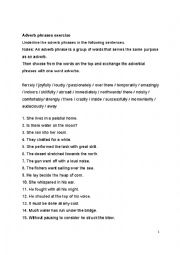
Adverbial Phrases
Level: elementary
Age: 16-100
Downloads: 13
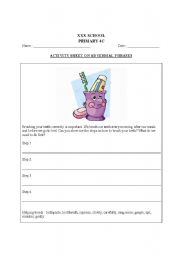
Adverbial Phrases
Level: elementary
Age: 8-10
Downloads: 2
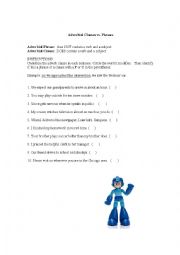
Adverbial Phrases vs. Clauses
Level: intermediate
Age: 10-12
Downloads: 1
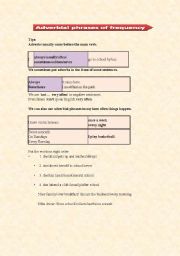
adverbial frequency phrases
Level: Öмä
Age: 6-14
Downloads: 0
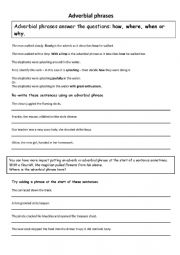
Adverbial Phrases
Level: elementary
Age: 11-12
Downloads: 17
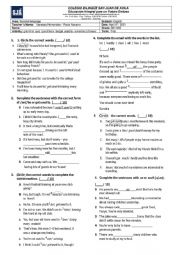
QUANTIFIERS- BE/GET USED TO- ADVERBIAL PHRASES TEST
Level: intermediate
Age: 13-100
Downloads: 25
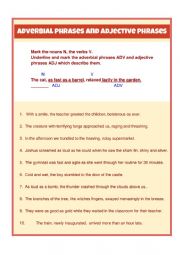
adverbial phrases and adjective phrases
Level: advanced
Age: 11-100
Downloads: 12
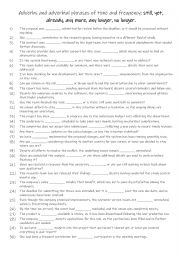
B1+-B2 Adverbs and adverbial phrases of time and frequency still, yet, already, any more, any longer, no longer.
Level: intermediate
Age: 12-100
Downloads: 132
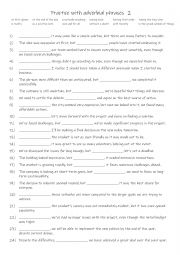
B1-C1 Practice with 12 adverbial phrases 2
Level: intermediate
Age: 10-100
Downloads: 122

Live Worksheets
Worksheets that listen.
Worksheets that speak.
Worksheets that motivate students.
Worksheets that save paper, ink and time.
Advertise here
|
Grammar worksheets >
Adverbs >
Adverbial phrases >
A2+-B1 Adverbs and adverbial phrases of time and frequency still, yet, already, any more, any longer, no longer.
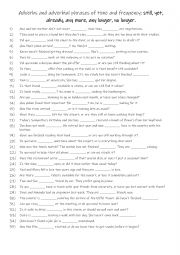
|
A2+-B1 Adverbs and adverbial phrases of time and frequency still, yet, already, any more, any longer, no longer.
These adverbs help students specify when actions or events occur. For example, "still" and "yet" are useful for indicating whether an action is ongoing or expected, while "already" specifies that something has happened before now.These adverbs are often used in various social and professional contexts to discuss schedules, deadlines, and changes, making them valuable for effective interaction.Answers on page 2.
Level:intermediate
Age: +10
Downloads:102 |
|
Copyright 12/8/2024 Anthoni
Publication or redistribution of any part of this
document is forbidden without authorization of the
copyright owner.
|


see more worksheets by Anthoni
|
|
|
Preview:

Page 1
Page 2
Comments:
|
|

























